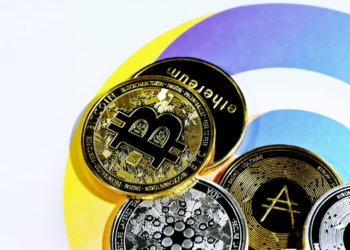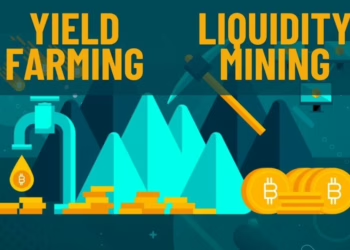Last updated on May 29th, 2023 at 11:20 am
KuCoin may appear to be the ideal platform for both active and experienced traders. The exchange offers futures trading, margin trading, and access to hundreds of tokens.
KuCoin is a cryptocurrency exchange with many advantages, including a user-friendly interface and low fees. However, some issues make it unsuitable for most US-based crypto investors, especially beginners.
The fact that KuCoin is not authorized to do business in the United States creates unnecessary barriers for most crypto investors in the country. Until recently, US investors were unable to purchase cryptocurrency on KuCoin using US dollars. However, the exchange now has a new feature that allows this, albeit with some restrictions.
KuCoin was launched in 2017 with the goal of becoming the “people’s exchange.” This company is exempt from US laws and regulations because it is registered in Seychelles.
This review explores the KuCoin cryptocurrency exchange, how it works, and its features, among other things.
What is KuCoin?
KuCoin is a popular cryptocurrency exchange with over 6 million users worldwide. It offers a variety of trading options, such as spot trading, futures trading, lending, margin trading, staking, peer-to-peer trading, and hedging. Though it has many options, this exchange is great for newcomers due to its simple design. The exchange also charges competitive fees.
The exchange was launched midway through 2017, but its founders had been experimenting with blockchain technology since 2011. The platform’s technical architecture was developed in 2013, but it took years of fine-tuning to make KuCoin what it is today.
A token sale (ICO) was held between August 13 and September 1, 2017, to raise capital for KuCoin development. During this time, KuCoin released its native token, the KuCoin Shares (KCS) token, which can be redeemed for exchange-exclusive benefits such as discounts on trading fees and a cut of profits.
KuCoin successfully raised nearly USD 20,000,000 in BTC (at the time) for 100,000,000 KCS in the crowdsale. One KCS cost 0.000055 BTC during the ICO.
The KuCoin platform underwent significant changes and improvements in 2019. The platform, which had been in use since the exchange’s inception in 2017, received a major facelift in February with the release of Platform 2.0. More features, like modern order types, a brand-new API, and more, were added in the update.
KuCoin Futures, formerly KuMEX, rebranded its derivatives trading platform as KuCoin Futures in June 2020. The exchange then introduced its margin trading (up to 10x) later in the year.
KuCoin’s services are now available in several countries, including Canada, Turkey, Japan, Singapore, India, the UK, and many others.
The Unique Features of KuCoin
Margin Trading
KuCoin offers margin trading to customers in the United States. Margin trading is best suited for experienced crypto investors because it allows them to take on significantly more risk when investing in an asset that is already extremely risky and has a history of volatility.
KuCoin token (KCS)
KuCoin has its Ethereum-based token called KuCoin Token (KCS) that can be used on the exchange. Users who hold KCS are eligible for lower trading fees as well as a daily share of KuCoin’s trading fee revenue. Users need to hold at least 6 KCS tokens to be eligible.
While KuCoin Shares (KCS) are an attractive feature of the KuCoin platform, users should be aware that KCS is a volatile cryptocurrency and that holding KCS does not guarantee consistent returns.
Trading Bot
KuCoin’s Trading Bot enables users to automate cryptocurrency trading by defining conditions that trigger predefined actions.
This can be used for various purposes, such as rebalancing one’s portfolio if asset allocation changes or setting limits to take advantage of price fluctuations while away.
Crypto Lending
KuCoin users can also engage in margin trading by lending some of their cryptocurrency holdings to other users. The interest rates and loan durations are not uniform across all listed cryptos.
Naturally, there are some risks associated with crypto lending. Even if the loans are secured, and the borrower is expected to make regular payments, losses due to price drops remain a possibility.
When a borrower’s KuCoin balance falls below 97%, margin calls are automatically triggered to replenish the coins borrowed. Suppose they are unable to repay in full. In that case, KuCoin’s insurance will cover the difference, though the terms of service state that this is not a guarantee.
Who Can Trade on KuCoin?
It should be noted that KuCoin is not licensed to operate in the United States. Nonetheless, US-based traders have access to a limited set of features. Only experienced traders in the United States looking for cryptocurrencies or trading features not available on other exchanges should consider KuCoin.
KuCoin users in the United States can’t fully comply with financial regulators’ KYC requirements. Because their identities cannot be verified, users face restrictions such as lower daily withdrawal limits.
If the U.S. government decides to shut down unlicensed cryptocurrency exchanges, as it recently hinted, users may lose access to their assets, either temporarily or permanently.
Furthermore, users in the United States can’t fund their accounts by depositing dollars. Customers have the option of using one of KuCoin’s partner services to either deposit cryptocurrency or buy cryptocurrency with a credit card, but at exorbitant rates. Neither of these options is suitable for those who are just getting started with cryptocurrency trading.
With these severe drawbacks duly considered, let’s discuss some advantages of using KuCoin. KuCoin is a cryptocurrency exchange that stands out for several reasons:
- It has extremely low trading fees.
- It facilitates transactions involving a wide variety of cryptocurrencies.
- It is one of the few exchanges that permits users in the United States to open a margin account.
- It has enticing bonuses and discounts tied to its token, KuCoin Token (KCS).
Considering these benefits, seasoned cryptocurrency traders may want to give KuCoin a try.
However, as with any cryptocurrency exchange, it should be noted that one is investing in a highly speculative and unproven asset class. Hence, users must be aware of the risks involved.
These risks are not limited to crypto volatility. For instance, the KuCoin cryptocurrency exchange is a common target for cybercriminals. A massive hack on the exchange resulted in the loss of $285 million worth of assets in 2020. Most of the stolen coins were eventually recovered, and KuCoin’s insurance covered any remaining losses.
Cryptocurrencies Listed on KuCoin
New and seasoned cryptocurrency investors alike will find nearly 600 coins available for trading and purchase on the KuCoin platform. The following is just a small selection of what KuCoin has to offer:
- Bitcoin (BTC)
- Ethereum (ETH)
- Ripple (XRP)
- Litecoin (LTC)
- USD Tether (USDT)
- KCS (KCS)
The full list of cryptocurrencies that can be traded on KuCoin can be found on KuCoin’s website.
Is KuCoin Secure?
KuCoin has partnered with Onchain Custodian to safeguard the cryptocurrency reserves on its platform. One of the services offered includes insurance from Lockton against hacking and other security breaches. Also, there is a program called “bug bounty” that pays hackers who responsibly report security flaws.
KuCoin asserts that client funds are kept in offline cold storage (which makes it harder to hack). It doesn’t specify, however, how much data is kept secret. Some funds must be held online in hot wallets so that customers can make withdrawals and trades, but knowing what proportion is kept where could be helpful.
KuCoin is second to none when it comes to user security. Regardless, users are strongly advised to enable two-factor authentication as well as a secondary trading password.
KuCoin allows users to configure “safety phrases” that will be included in all future emails from the exchange to further protect them from phishing attempts.
However, some extra caution is advised. First, it’s unclear whether the insurance policy would protect users’ assets in the event of a company failure. In the event of a bank failure, FDIC insurance will cover up to $250,000 in losses. However, this is not the case for cryptocurrency exchanges.
Second, using an unregulated exchange poses additional risks to US residents. Authorities are cracking down on US citizens who use unlicensed services to reduce money laundering and tax evasion. Individuals who trade on an unsupervised trading platform risk having their funds and accounts frozen.
In Conclusion,
- KuCoin is a forward-thinking cryptocurrency exchange with lofty aspirations. The exchange has come a long way since its inception in 2017, and it is now regarded as one of the best in the industry in terms of safety, dependability, service quality, and functionality. Because the exchange has so many tokens and assets, it is an excellent place for both new and experienced traders to diversify their portfolios.
- In August 2021, Forbes ranked KuCoin as one of the best cryptocurrency exchanges, praising the platform’s user-friendly interface and impressive functionalities, which afford avid investors the opportunity to make a steady income.
- KuCoin is an excellent place for beginners to start trading cryptocurrencies. Investors interested in more cryptocurrency trading options should read our review of Binance.
Disclaimer: This piece is intended solely for informational purposes and should not be considered trading or investment advice. Nothing herein should be construed as financial, legal, or tax advice. Trading or investing in cryptocurrencies carries a considerable risk of financial loss. Always conduct due diligence.
If you would like to read more articles like this, visit DeFi Planet and follow us on Twitter, LinkedIn, Facebook, and Instagram.
“Take control of your crypto portfolio with MARKETS PRO, DeFi Planet’s suite of analytics tools.”




















